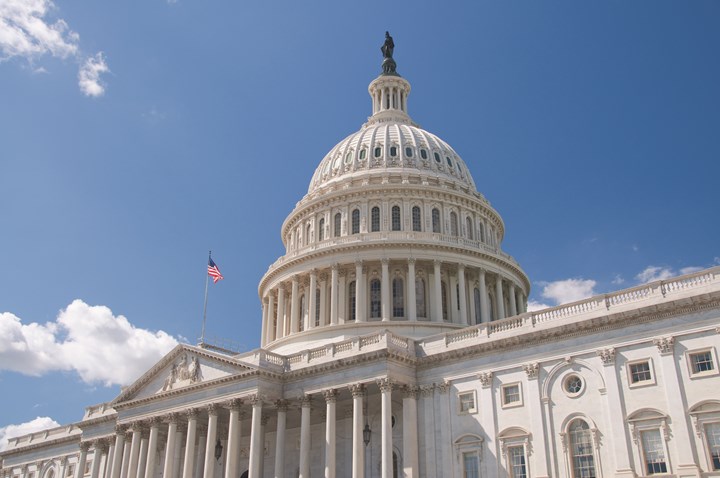PMPA Advocacy and Your Bottom Line
Your return on investment for PMPA’s Advocacy efforts can be seen on the increased depreciation and credits taken on capital equipment purchases, on the 100% tariffs that were avoided on the European-sourced copper and brass products that you machine and on the repeal of the 2.3% Medical Device Tax, the 1.9% Health Insurance Tax, and the 40% Cadillac Excise Tax on health care plans.
#pmpa
PMPA’s advocacy work in Washington, D.C., is something that most people would find to be a low priority. Politics has never, in my memory, been a polite topic, and the polarization and demonization of those that hold different views seems to be at an all-time high. But ignoring reality is not a good business strategy. In fact, legislation and regulations are being formulated and implemented — even as the media paints Washington, D.C., as a place where the current hyper-partisan deadlock insures that nothing gets done. While no one wins while arguing with those talking heads on the news, the fact is that 2019 was a good year for resolving the issues that your PMPA has been working on in our nation’s capital. Here is a quick look.
Workforce
Workforce is the No. 1 issue facing our precision machining shops today. The headline unemployment rate remains at its 50-year low, and employment is strong across all groups tracked. Manufacturing job openings outnumber available applicants — this remains a challenge to our shops. In 2019, PMPA advocated for increased funding for Registered Apprenticeships, to continue the Manufacturing Extension Partnership Program and the Workforce Innovations Opportunities Act (WIOPA). Funding increases for each of these programs resulted. PMPA continues to work with the Department of Labor to develop a skills-based, industry-led apprenticeship program.
Featured Content

Regulations
Regulations have been challenging for small manufacturers, and PMPA has worked diligently to remain aware of the regulatory challenges and to advocate for responsible regulations. We actively participate in agency rulemaking by providing comments so that regulators can understand what is reasonable and practical as well as supported by science. In 2019, PMPA provided comments to Department of Labor regarding Lockout/Tagout, as well as to EPA regarding proposed changes to lowering the ozone threshold. We signed on to comments regarding Joint Employer Rule, which was successfully changed. We also had successes in getting the salary threshold for overtime lowered to $35,568. We are most proud of our work toward eliminating the requirement to electronically file OSHA 300 and 301 forms, which would have put employee and company confidential information visible to all online. Here is a link to OSHA’s Amended Rule: bit.ly/pm-pmpa320.
PMPA had been a leading advocate prior to 2019 for tax reform across administrations and congresses, winning several permanent changes to depreciation rules, bonus depreciation and research and development tax credits. In 2019, our efforts on repeal of the 2.3% medical device tax, 1.9% health insurance tax, and the repeal of the 45% Cadillac excise tax on health care plans over $10,200 for individuals/$27,500 for families that have bore fruit.
Trade
The dispute regarding subsidies for Airbus by the European Union provided an opportunity for punitive tariffs. Imagine a 100% tariff on the raw materials that you need to make the parts that you sell. That doubles the material cost alone. PMPA promptly commented on the proposal to levy a 100% tariff on copper materials produced in Europe for use here in the U.S. for production of precision machined parts. The tariff was not imposed. (PMPA members would certainly prefer to purchase domestic materials, but for our most sophisticated and challenging applications, domestic sources are often not available in the grade, quality or lead time needed to fulfill customers requirements.) Our work on the steel and aluminum tariffs also was successful — the tariffs were lifted from these materials from Canada and Mexico. We continue to work to oppose steel and aluminum tariffs.
Bottom Line
PMPA’s effective efforts at advocacy for our precision machining shops has delivered savings and cost avoidance for our shops’ bottom line. Elimination of some tariffs and avoidance of others helps our shops to stay competitive globally. Elimination of taxes on our products (medical device tax) helps our shops to be competitive and to encourage innovation in this important market. Elimination of taxes on the benefits that we offer our talented workforce (health insurance and health care excise tax) helps to sustain them as well as eliminate their worries about potential health emergencies for them and their families. Politics remains something that most of us would prefer to avoid, but your bottom line can show you the many reasons why PMPA’s effective advocacy efforts in Washington, D.C., benefit your business.
For more articles from PMPA, visit:
About the Author
Miles Free, III
Miles Free is the PMPA director of industry affairs with over 40 years of experience in the areas of manufacturing, quality and steelmaking. He helps answer “How?,” “With what?” and “Really?” Miles’ blog is at pmpaspeakingofprecision.com; email: mfree@pmpa.org; website: pmpa.org.
RELATED CONTENT
-
Recovery, Recrystallization and Grain Growth — Three Phases of Annealing
Below are some of the terms and effects applicable to annealing steel.
-
Steel Defects Seams on Rolled Steel Products
Learn how to detect and avoid defect seams in rolled steel products.
-
Recruiting for Manufacturing Part 3
Producing recruiting material can seem daunting, but you may be surprised at how many resources you already have in your shop.






